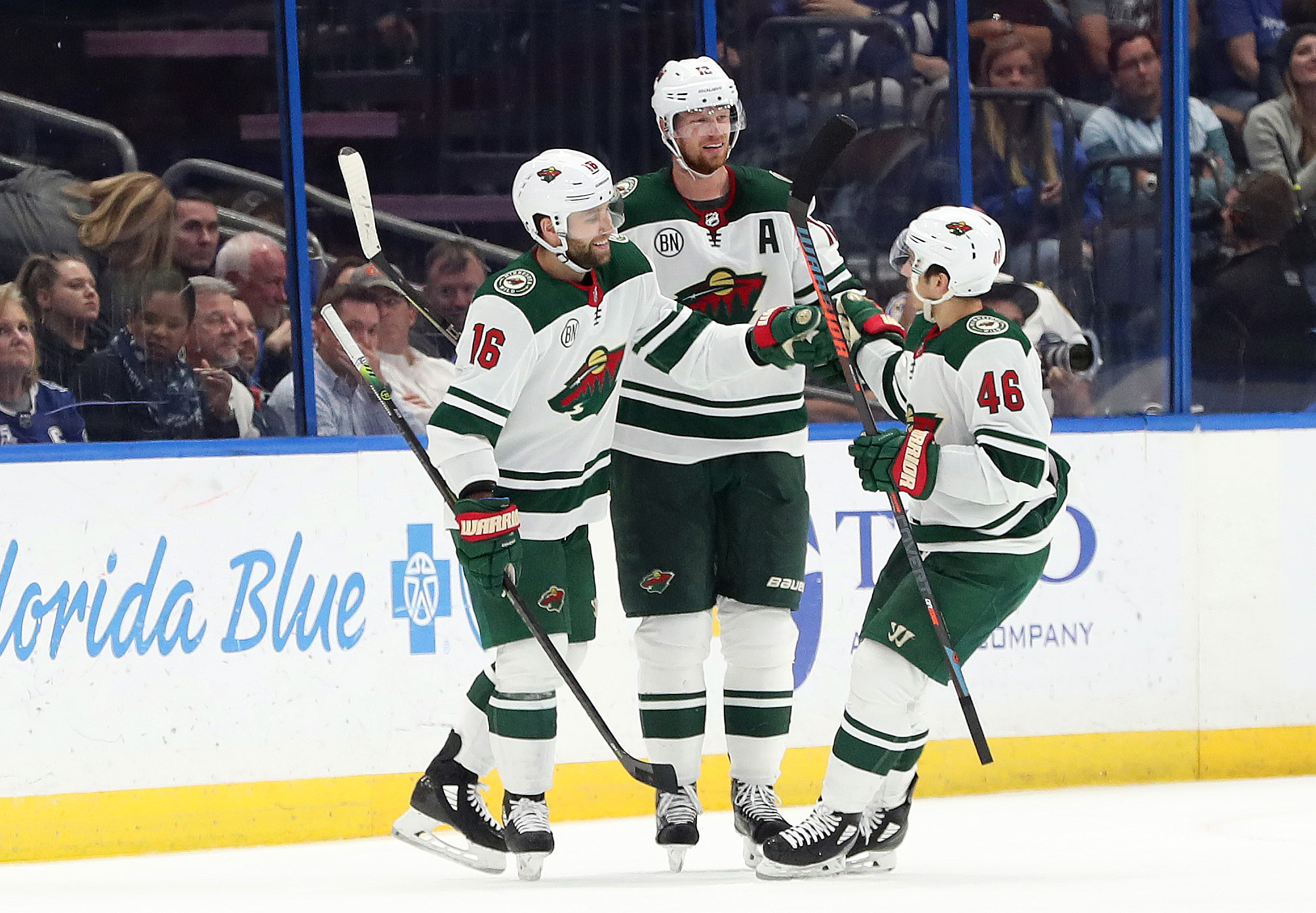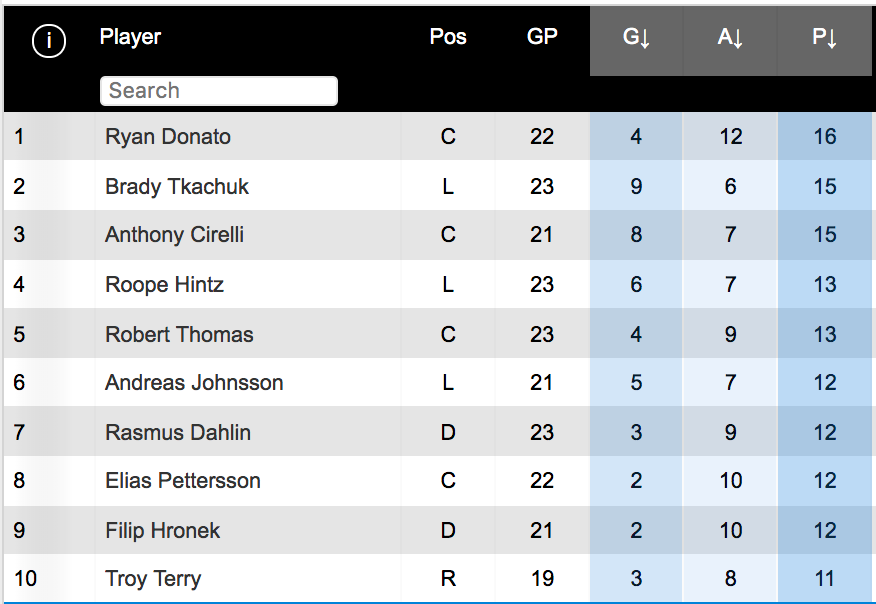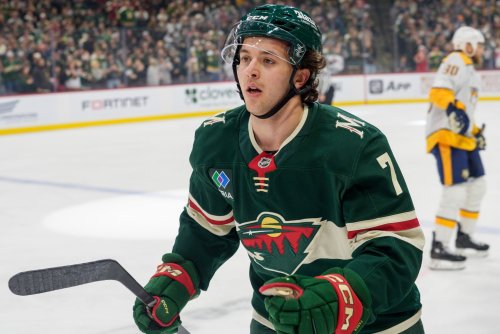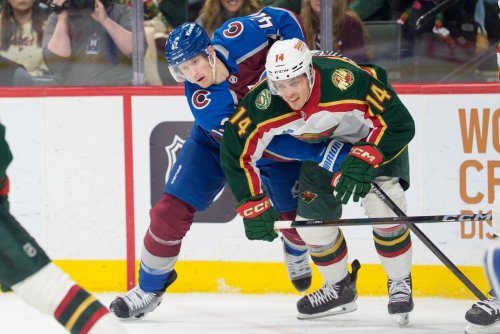
No goals in the final 124:49. Eleven shutouts this season. Ranking 27th in the league with 210 goals scored. Ranking 28th in the league with 140 goals scored at 5-on-5.
That is just a small sampling of how abysmal the Wild offense became in the 2018-19 season. An offense that was just one year removed as the 11th best in the league -- 250 goals -- and two years removed from being the 2nd best in the league -- 263 goals scored.
The offense now represents general manager Paul Fenton's top priority this offseason. He has to fix his suddenly woeful offense in his first full offseason in charge of the Wild if he wants them to work their way back into the postseason in 2019-20.
Even players on the Wild have targeted the offense as a need for an upgrade when forward Jason Zucker told the media following Saturday's finale in Dallas, "If it’s not addressed, then we have problems."
If you are asking why the Wild offense had a tremendous dropoff in just a year's time, you are not alone. However, the answer is not down to just one or two things. It's a multitude of problems that reared their ugly heads this season.
Matt Dumba's season-ending injury on December 15th played a role in the decline of the Wild offense. At the time of his departure, Minnesota was league average in scoring goals. They had 100 goals in 31 games (3.2 goals per game) scored before the game Dumba was lost with injury, and only tallied 110 goals in 51 games (2.1 goals per game) since his departure.
Dumba's departure, coupled with Eric Staal and Jason Zucker having declines offensively this season, exposed serious warts in the Wild offense. Staal regressed from 42 goals last season to 22 this season while Zucker slipped from 33 last season to 21 this season.
Combined between Staal and Zucker in 2017-18, they accounted for nearly 30% of Minnesota's offense. Then account for Dumba being on a ridiculous 31 goal pace before his injury, and there are over 50 goals lost which show how valuable all three are to Minnesota's success offensively.
Then came the new acquisitions for Fenton's Wild for which many did not have any good results offensively. Kevin Fiala, Victor Rask, Anthony Bitetto, Brad Hunt, and Pontus Aberg -- all midseason acquisitions -- combined for just 21 points since they were brought to the roster.
The players those five acquisitions replaced -- Nino Niederreiter and Mikael Granlund -- were key cogs in the Wild offensive machine. Replacing Niederreiter and Granlund with 21 combined points is just not good enough to get a team into the playoffs.
Ryan Donato was the only acquisition that made a positive impact offensively on a consistent basis. The Boston native scored 16 points in 22 games with the Wild after being acquired on February 20 in exchange for Charlie Coyle. Those 16 points from Donato since the trade led all NHL rookies in that time.
[caption id=attachment_47640" align="alignnone" width="876] via NHL.com[/caption]
via NHL.com[/caption]
Speaking of rookies, the Wild also did not get great production from their other young players who started the season on the roster. Jordan Greenway finished with 24 points in 81 games. Joel Eriksson Ek became a mainstay on the Wild roster after Mikko Koivu's season-ending injury in February but he still finished the season with just 14 points. Luke Kunin played nearly the final two-thirds of the season with Minnesota and still could only muster 17 points.
While those players had good games here and there, there was no consistent offensive play from any of them which is a major red flag for Minnesota heading into next season.
Another red flag for the Wild is that their depth at forward is razor thin and they were not getting any production from their bottom lines. There was also seemingly no one in Iowa (Sam Anas, anyone?) who inspired a call up offensively so Matt Read was continuously recalled at the end of the season if the Wild needed an extra body.
Typically, you would like to see someone get a call-up and maybe provide a lick of offense other than the likes of Read of Kyle Rau who just combined for two points.
This is not an easy fix for Fenton, but it is the one he has to put at the top of his list of addressing this offseason. He will likely be addressing this need through both trades and free agency as the Wild look to be one of the more active teams in the NHL's offseason as they possess some tradable assets -- Zucker and Jared Spurgeon -- and also have some premium cap room of $18 million.
Goaltending this season was suspect for the Wild, and Devan Dubnyk could easily rebound in 2019-20. So that is why the priority for Minnesota has to be addressing their offense, which was non-existent in the season's final weeks when they needed it most.
Relying on the kids heading into next year simply just won't cut it. More changes have to be made.
Stats in this post courtesy of NHL.com, Hockey-Reference, and Natural Stat Trick.
Keep Up With The Wild Offseason By Listening To Giles & The Goalie!
Think you could write a story like this? Hockey Wilderness wants you to develop your voice, find an audience, and we'll pay you to do it. Just fill out this form.










Recommended Comments
There are no comments to display.
Join the conversation
You can post now and register later. If you have an account, sign in now to post with your account.
Note: Your post will require moderator approval before it will be visible.